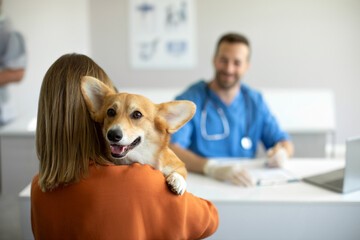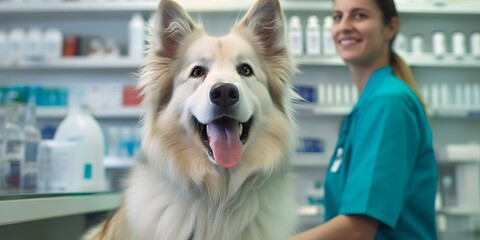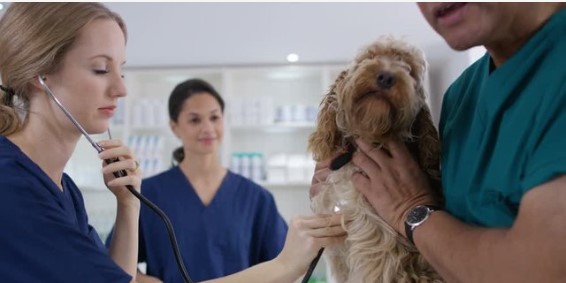Pets, wildlife within our ecosystems, research animals contributing to improved human health outcomes, zoo animals, and animals that contribute to food resources all depend on the assistance of human workers to maintain their environments and health.
Veterinarians, therefore, play an instrumental role in many animal species’ support systems, but they have an even larger role in the overall day-to-day nursing care of animals both large and small, land and marine. These support teams are made up of veterinary nurses, technicians, and assistants, each of whom carry out veterinarian orders, carefully hand feed sick animals, monitory sedated surgery patients, administer injections and vaccinations, and oversee patient care.
The Importance of Veterinary Support Teams and Their Work
Dr. Cynthia Maro of Pittsburgh speaks to how the work of vet techs is never “just a job”, but rather a passion and purpose. This passion and sense of purpose drives them even as they handle some of the most difficult areas of their work. Who would choose a career path where you may need to clean up vomit and diarrhea from animals as small as rodents and as large as elephants if they did not truly love and are for the living beings that they are responsible for?
Dr. Maro upholds that veterinary support teams and veterinary technicians are the backbone of veterinary medicine and are vital for ensuring that veterinarians can be as effective and efficient as possible when working on our animals.
LVT’s are educated similarly to RN’s in human health care, and veterinary assistants (VAs) can be compared to LPN’s and need to pass a Board exam as a requirement of their profession. These individuals work in veterinary facilities, zoos, human and animal health research, and teaching facilities, and their salaries are often between only a quarter and a half of nursing professionals’ income.
How Can We Thank Veterinary Support Teams on National Veterinary Technician Week?

October 15-21, 2023, marks National Veterinary Technician Week, established by The National Association of Veterinary Technicians in America to honor vet techs and their important role on patient care teams.
Support teams are incredibly humble and diligent, driven by their love for their animal patients. That said, many do not expect much thanks — but they certainly do appreciate it!
Pet owners and veterinary leaders alike can show their gratitude to support teams on National Veterinary Technician Week (or any time of the year) with the following:
- Food! Healthy snacks sent to the clinic such as fruits, vegetables, and finger foods are always appreciated by veterinary staff. Many staff members often work through their lunches and breaks, so food that can be enjoyed quickly or is handheld are great options here.
- Baked goods are another awesome food option that support teams always appreciate. Whether it is storebought or homemade doesn’t matter, the gesture is all the same.
- Beverages such as smoothies, protein drinks, or coffee that can be delivered through Grubhub, Uber Eats, DoorDash, or personally are a favorite of support teams. Remember to get a head count from someone in the office so that no one misses out.
- While waiting for a sick pet’s treatment, know that the care your pet receives will likely reduce time for staff breaks. If you are stepping out, it can be a great gesture to let the team know that you would like to treat the staff. From there, you can quickly grab something from a local favorite bakery or store for a staff surprise.
- If technicians are coming to you to treat a large animal, having boxed wraps, drinks, or other treats that they can take with them on the road is an extremely kind gesture.
- Staff really appreciate notes from the owners of animals in their care. If you have the time, write a note of thanks with an example of how the team made a positive difference in your pet’s life!
- Gift cards to staff members’ favorite places can really brighten up their days. These can always go in a thank you card with a kind sentiment.
Additional Ways to Reduce Veterinary Staff Stress on a Regular Basis

- Try to schedule the appointment that you would like your pet to receive. Always remember that emergency visits and sick pets take considerably longer to treat in an office than basic checkups. For small animals, do not schedule a “well pet visit” for vaccines, and arrive with a health complaint as this pushes into “sick pet visit” territory.
- Be sure to list ALL of your concerns regarding your pet when you are scheduling their appointment. This gives staff the ability to allot enough time for the visit and categorize it appropriately.
- For large animal visits, do not expect your vet to see extra animals that are not scheduled. This is uncourteous as there are other clients who have scheduled appointments after yours.
- Always arrive to your scheduled visit on time, even if the veterinarian has run behind on their schedule before.
- Let your veterinarian know if you are on a time crunch and need to be checked out by a specific time. In addition, try not to show up late and expect that the staff can treat your pet within minutes because you are in a rush. Naturally, it puts a lot of pressure on staff teams when this happens.
- Call or email two days prior to requiring a prescription refill for your pet. If the refill is a special order or compounded drug, aim for at least 7-10 days.
- Know your budget for animal care beforehand. It is always best to be upfront about financial limitations and not get angry with staff if you cannot afford the care in question.
- Extend grace and kindness to support staff during times where they are stressed. Keep in mind that they deal with death, emotional owners, and aggressive pets regularly.
- Be the type of person who celebrates even small success. Post positive reviews on the platforms of your choice when you feel the staff has done a great job with your pet.
LVT’s and support staff work hard to provide clients and pets with the compassionate care that they deserve out of love and kindness. Showing gratitude, respect, and kind gestures really goes a long way towards making their days brighter and can lead to an amazing Veterinary Technician Week for the teams that you choose to honor!
Dr. Cynthia Maro – Integrative Veterinarian, Cynthia Maro, DVM, CVA, CAC, VMRT, VNAET
